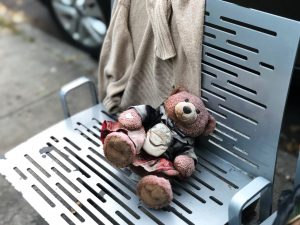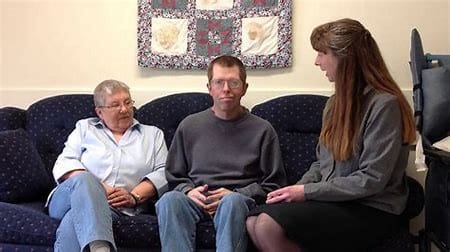The term “adult child of alcoholic” (ACOA) first came out around 1980, to describe the multitudes of “children” trapped in adult bodies. These individuals were in a constant state of confusion, resentment and hurt that was deeply embedded in them since a dysfunctional childhood with a drunk parent/s.
Urged on with a strong desire to share and heal, ACOA grew in momentum. It is now a worldwide movement.
Members began to discover their “inner child” who wasn’t alone. This frozen and forgotten part of their beings was finding space to emerge and heal.
According to some ACOAs, they often felt like “children walking around in the bodies of grownups.” In ACOA sharings, they admitted that they were still experiencing fears haunting them since childhood. Alcohol had turned their homes into scary places while growing up, and they were scared of their alcoholic parent/s.
When they met other Adult Children of Alcoholics, they were relieved to know that they were not the only ones who avoided inviting friends home, hid when their parent was drunk and envied classmates with “normal” families.
This “inner child” was often triggered when they began to have families of their own. They felt an uncomfortable blast from the past while interacting with their spouses or children. Demons from their childhood suddenly emerge to threaten the current relationships with their own families.

Constant chaos lurks beneath the calm
Intimacy and inter-dependency are a natural part of any healthy family. However, for an ACOA, they become potential triggers of stress. Just as a soldier with post-traumatic stress disorder (PTSD) responds to the sound of a car backfiring: he “hits the dirt” because his subconscious interprets the sounds like gunfire.
In other words, ACOA syndrome is a post-traumatic stress disorder. Long after the “stressor” goes away, the ACOA continues to experience the trauma. The individual may have left home and settled in their own life far away from their childhood homes; the pain, however, awaits to emerge, triggered by situations that mirror the hurtful past. Unrelated incidents occurring in their families subconsciously remind them of their unresolved pain. They get scared all over again.
They are weighed down by a sense of impending doom, expecting to get betrayed by their loved ones once again. Ghosts from the past surround their present. Fear, humiliation and chaos appear to be lurking around the corner, which mimics their childhood experience. To make things worse, they may be so convinced that distress is looming that they become suspicions if problems are solved too easily. In a convoluted attempt at self-preservation, they may be looking for danger where none exists.
Ultimately, they may land up actually creating a problem out of nothing. And so, the pattern of emotional intimacy and dependence leading to chaos, rage, betrayal and tears is once again relived and reinforced.

The brain in a state of fear
Our thinking brain shuts down when we’re terrified, but our feeling brain keeps active, absorbing the environment. The cortex, which is where we can think about our feelings and making sense of it, shuts down when it senses in danger. Our limbic system takes over, and we go into ‘fight or flight’ mode. Nature does not intend us to think about running for safety when confronted with a charging, wild animal. It wants us simply to run.
Home becomes a prison
But for a child, a drunk, out-of-control or neglectful parent is just as terrifying as a sabre-toothed tiger. Such incidents push a child into a state of extreme stress and fear. They freeze in fear – like a deer in the headlights, getting caught in a “startle response.” Then there is an attempt to fight or flee. If escape is possible, the traumatic experience will be temporarily stressful, and the person is unlikely to develop full-blown post-traumatic stress disorder. If, however, the intention to flee is stopped, there’s a “freeze” response. What is a child supposed to do? If they fight, they will eventually lose. The parent, after all, holds all the keys of the house. And if they flee, there’s nowhere to go. There are no options for the child – it’s a trap.
For children who grew up in addicted families, their homes become prisons, with nowhere to run. All of those fear-laden memories remain unconscious and unprocessed. The adults in the families who would typically have offered comfort and safety were instead causing the stress and fears. It is indeed a perplexing and traumatic situation for the child of the addict – the parent who should be providing protection and nurture is the cause of all confusion and pain. The case is hopeless. There is no escape.

How childhood pain is relived in adult relationships
When children are not able to make sense of painful and perplexing childhood experiences, those experiences linger on. The associated images, impressions and emotions remain locked within their unconscious, waiting to burst forth to the surface. Unfortunately, when they do break cover, they get projected onto the situation that triggers them, with little or no awareness of their origins. They may view the present circumstance as the sole cause of their intense emotional reactions. They may not be aware of the pain from their past triggering the present overreaction.
Such unresolved emotions can make adult intimacy feel confusing, hindered and unmanageable. The past becomes mixed up with the present. Problems tend to appear larger and more complex than they are. Some psychologists call this ‘relationship trauma’ because childhood relationship trauma is getting triggered and overshadowing adult relationships.
There is a solution
But there is a solution. Relationship trauma is very treatable with appropriate therapy. Fellowships like ACOA where the affected person can share with others in a similar situation and seeking support from therapists are effective ways to manage the pain from the past.

The process of recovery becomes a journey of personal growth and a deepening of self-awareness. Relationships can be reignited and rebuilt. The past can heal, and the future can hold real promise of fulfilment.
Our professional, qualified counsellors are available to discuss further, carefully tailored to your needs. Call us on 0800 140 4044, or send us an online message.



